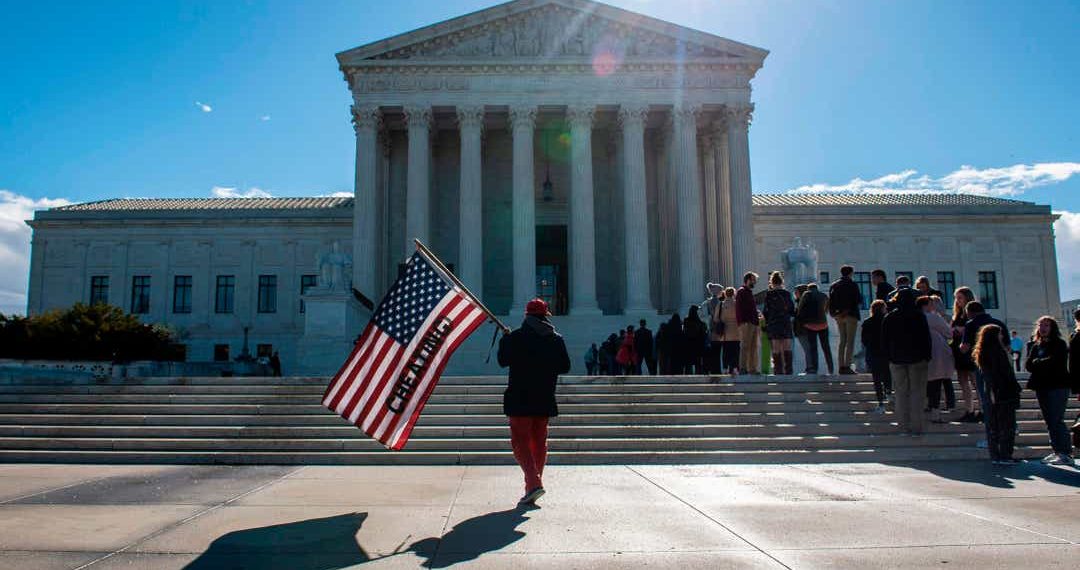In the past few months, we’ve seen American progressives’ worst fears come true as the U.S. Supreme Court continues to make decision after decision based on partisanship rather than legitimate neutral legal interpretation. In two of the most glaring examples, our nation’s highest court (voting along predictable ideological lines) reversed sensible decisions by lower courts that aimed to protect our Democratic process, throwing our democracy to the wolves in the process.
One of those decisions allowed this criminal administration to use Pentagon funds to build its racist and useless border wall. Another separately ruled that our federal courts may not correct instances of partisan gerrymandering that hijack our electoral process and put politicians in the perverse position of choosing their constituents, instead of the other way around.
This last decision is particularly galling because it so clearly aids Republican state legislators that have teamed up to deny voters a meaningful opportunity to choose their representatives by drawing contrived boundaries for legislative districts that ensure their own re-election. This sad pattern not only undermines democracy but also promotes corruption.
The Supreme Court’s abdication of its constitutional responsibility suggests at least two responses, neither of which have been the object of widespread discussion.
Biased Courts
First, the Supreme Court’s demonstrated and documented political bias impedes the institution from performing its constitutional function. Rather than impartially determine how the law should treat issues like efforts by career politicians to co-opt our democracy, the Court appears to evaluate legal questions through the lens of how to preserve and extend the power of political parties, particularly the GOP.
Our justice system routinely abuses the rights of Americans. These abuses are not violations of abstract principles — they destroy the lives of individuals, their families, and entire communities. #ShahidForChangehttps://t.co/80ZDgYhadV
— Shahid Buttar (find me on Substack and BlueSky) (@ShahidForChange) June 2, 2018
In addition to a bias favoring corporations and disfavoring workers, the Supreme Court has also abandoned its constitutional responsibility to guard the democratic process, by striking down laws that once supported political rights (such as Section 5 of the Voting Rights Act) and inviting partisan monopolies to hijack the political process. According to Karen Hobert Flynn, President of Common Cause, this decision is
“part of a disturbing pattern from the Roberts Court of … eviscerating reforms passed by Congress to protect the integrity of our democracy. This Supreme Court has gutted the landmark Voting Rights Act, shredded campaign finance limits in Citizens United, and now it has condoned extreme partisan gerrymandering.”
Having worked on the Shays vs. FEC appeal that upheld campaign finance regulations struck down by the Citizens United decision a few years later, I’ve grown increasingly alarmed as the Court has continued to undermine democracy from one case to the next.
Packing Court vs. Restoring Legitimacy
Responding to the Court’s politicization, many voices are clamoring to expand the size of the Court and add new Justices. Those who propose that solution in the name of correcting the Court’s bias seem to forget a few things.
First, there is no clear pipeline from which to find a plethora of progressive jurists. While Republican presidents have weaponized their appointments to place ideologues on the bench, Democratic presidents have declined to respond in kind, often appointing diverse prosecutors rather than public defenders or legal advocates for communities.
More important, while packing the Court might seem to address the Court’s bias favoring corporations over workers, it would, unfortunately, substitute one prejudice for another. Eroding the independence of the judiciary inevitably harms the Republic by subverting the rule of law.

In contrast, a structurally neutral process remedy could ensure turnover on the Court and restore the legitimacy of its jurisprudence. A decade ago, in the midst of the Barack Obama administration, I proposed replacing life tenure for Supreme Court Justices with a straightforward system of 18-year staggered terms.
This proposal would not eliminate the Court’s bias overnight. It would, however, diminish the incentives for younger “stealth” nominees, and enable a more reasoned approach to a judicial nominations process derided by one repeat player in the Senate as a “Kabuki dance.”
It may be ironic to consider corporations as subject to an extraordinarily demanding set of social roles, particularly since corporations effectively dictate our social policy and run roughshod over the rights of communities. It may be revealing, however, that the only actors subject to even less regulation – permitted by the law and allowed an even broader license to abuse the public interest – are career politicians and the Supreme Court Justices-for-life who have politicized the law to entrench their partisan allies.
Disclaimer: The views and opinions expressed here are those of the author and do not necessarily reflect the editorial position of The Globe Post.






















